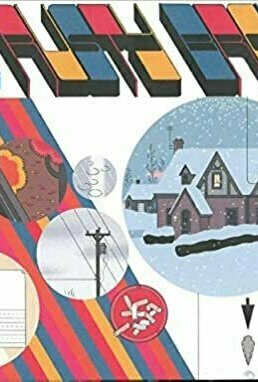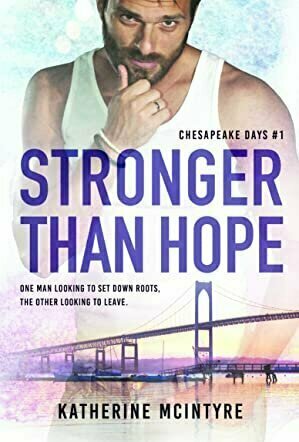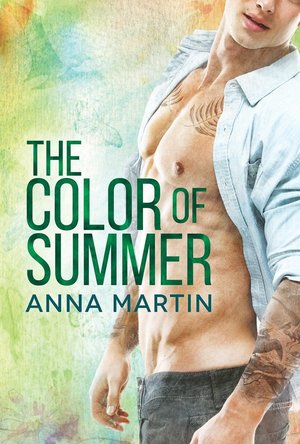
Swiss3D PRO
Travel and Reference
App
*** Appreciated by "Le Nouvelliste", "mac4ever.com", "iPhone-blog.ch" and perhaps you! - At which...
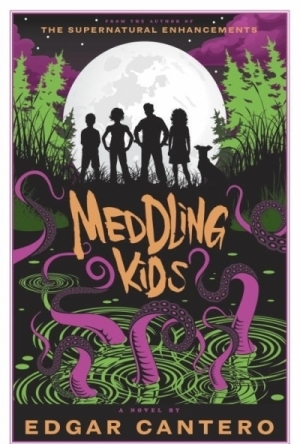
Meddling Kids: A Novel
Book
With raucous humor and brilliantly orchestrated mayhem, Meddling Kids subverts teen detective...
Fiction Horror Humor Dark Fiction Mystery Paranormal
Kirk Bage (1775 KP) rated Rusty Brown in Books
Aug 6, 2020
I don’t have a big history of reading graphic novels. In fact I can count them on one hand: this one, Watchmen, V for Vendetta and Persepolis. But what I see I like. There is something extra on the storytelling that is the best of both a book and a film – like a film unravelling at the pace of a book, with your imagination made into still images. I love the possibilities of them! There really isn’t anything you couldn’t do with it given enough imagination. I must try a few more as I go through life.
Rusty Brown, by Chris Ware is rich, melancholy, sometimes downright sad, but always truthful. Nothing is exaggerated, only presented, as we see snapshots of all the children and teachers that live in a small American town. They are dealing with regret, nostalgia, self-esteem, bullying and secret Joys, but in a mundane way as the routine of life plays out around them. Yet it manages never to seem bleak or hopeless, as enough moments of beauty keep everyone afloat.
There is a hint of subversive politics going on under the surface, but no more than issue flitting through Chris Ware’s mind; there’s no agenda or propaganda going on. He’s basically showing us a place he knows and saying, huh, what do you think of this. It made me laugh out loud many times, and cry at least twice. Remarkable work.
Both this artist and graphic novels in general are now very much something on my radar to learn more about and enjoy. If you haven’t ever really tried, I recommend Rusty Brown Chris Ware whole-heartedly as a starting place.
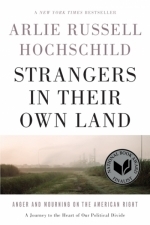
Strangers in Their Own Land: Anger and Mourning on the American Right
Book
2016 NATIONAL BOOK AWARD FINALIST FOR NONFICTION A 2016 NEW YORK TIMES NOTABLE BOOK NEW YORK...
Politics social issues
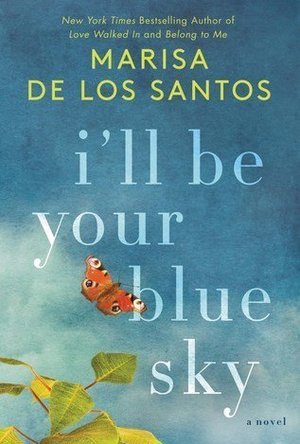
I'll Be Your Blue Sky
Book
The New York Times bestselling author revisits the characters from her beloved novels Love Walked In...
fiction contemporary fiction series
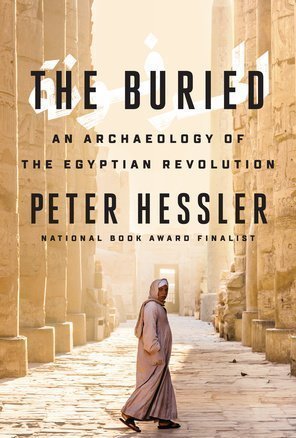
The Buried: An Archaeology of the Egyptian Revolution
Book
From the acclaimed author of River Town and Oracle Bones, an intimate excavation of life in one of...
Debbiereadsbook (1650 KP) rated Stronger Than Hope (Chesapeake Days #1) in Books
Mar 11, 2022
I have to say, I think that Ms McIntyre's MM books are coming on in leaps and bounds! They've all been good but they get better and better!
I try really hard NOT to read other people's reviews before I read a book: I got burned once and will never do it again. I will, however, read them before I write mine. Mostly to see if what they thought and if I thought the same. The general consensus for this book is this:
It's a really sweet book, with most wanting to punch Linc in the face a time or two. And I have to say, I feel exactly the same!
Linc is self-sabotaging his life. He loved his wife, he really did, but dealing with a 6-year-old, his job and his grief is pulling him under. He's a bad bet in anyone's book, he thinks. Nate, on the other hand, thinks he's no good cos he won't settle. But he WANTS to settle, just not for the sake of it, you know? They really are polar opposites, but so well suited!
Linc grew on me, though, and I really did wanna wrap him up in cotton wool a time or two! He needed a hug!
The book deals with grief, Linc lost his wife in child birth. It is handled sensitively, making the point that there is no time line for your grief, it's up to you when you want to move on. Living in a small town is difficult at the best of times, but in this matter? making Linc want to run away. And it's that fact the most that he should have conveyed to Nate, once they decided they were a thing. That he wanted to run, but NOT from Nate.
It's an emotional read, a steamy read and a well-handled difficult read. It's full of the warm and fuzzies and is too stinking cute and I loved it!
Linc's friends, Nico and Jer, need a story, please, Ms McIntyre! I'll grovel if need be!
5 full and shiny stars
*same worded review will appear elsewhere
Merissa (13749 KP) rated Renovating the Model (Forestville Silver Foxes #1) in Books
Apr 28, 2023
Forestville is a small town with five young friends, their lives still ahead of them. In the prologue, you get a flash-in-the-pan moment with them, which is still enough to give you a general feeling. Then we fast-forward to the present and the High School Reunion. There we catch up with what they've each been up to.
Tiago and Tomas are the twins who became world-famous models. Tomas still loves it. Tiago... not so much. Cas is the local handyman who walks in on Tiago, not knowing the room was occupied. And BOOM! There we go.
Let me say ALL the characters in here are fantastic in their own ways and I really can't wait to read more in this series. I was playing matchmaker in my mind as I read! But, back to this one. Cas is the charmer in here for me. He is confident in his work, although not as confident in his appearance due to scars on his face from a car accident. He will help anyone with anything if he can. He is also the younger of the two. And that is where my problem lay. I just couldn't believe that Tiago was that detached from the world! I understand his dyslexia. It runs in my family, so I know how hard it can be. Tiago had an innocence, a naivety, that just didn't hold true for me. I'm glad for both Tiago and Tomas that they are out of that unhealthy sibling relationship. It's past time for them both to spread their wings.
Saying all of the above though, and I still thoroughly enjoyed the story and the characters. A great start to a series that I will be continuing. Definitely recommended by me.
** same worded review will appear elsewhere **
* A copy of this book was provided to me with no requirements for a review. I voluntarily read this book; the comments here are my honest opinion. *
Merissa
Archaeolibrarian - I Dig Good Books!
Apr 28, 2023
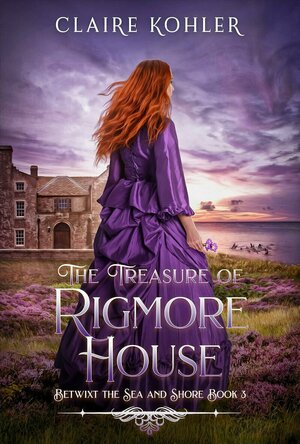
The Treasure of Rigmore House (Betwixt the Sea and Shore #3)
Book
An heiress forced to choose a husband by her next birthday. A former selkie bent on revenge. Can...
Historical Fantasy Romance
Debbiereadsbook (1650 KP) rated The Color of Summer in Books
May 30, 2019
Max returns home to open his tattoo studio and to be closer to his mum. On the way he gets stopped speeding, by his best friend's older brother, Tyler. While Max has immediate attraction to Tyler, Tyler is straight and tells him so. But there is . .something . . between them, and as the summer begins, the relationship grows. Can Tyler be a cop in a small town, who is gay?
I might gush about this book, just a heads up! Cos I bloody LOVED it!
Max returns to his home town after his mum has a stroke. He wants to be closer while she recovers. And he wants his own tattoo studio so combines the two plans into one. Meeting Tyler throws Max for a loop, cos he never really noticed Tyler before, you know? He was just Shane's big brother, is all. But now, the man did grow up good and proper and he pushes all of Max' buttons.
Tyler is just plodding along, bringing up his daughter with the help of his family. Catching up with Max was fun, and Tyler really needs a friend. But his long suppressed attraction to men, and to Max in particular begins to resurface, Tyler doesn't want Max as a friend, he WANTS Max. He has his daughter the think about, though, and his job as deputy, and his brother's reaction to finding out.
I really LOVED this, it fell on my kindle just when I needed it to and I devoured it. That's the only word I can find: devoured.
I went to bed to read a few chapters and the next thing I know, it was 1am and I had finished. It's not a short book, 230 odd pages, but it felt a lot less. A sign of a good, nay, GREAT book, that; that it doesn't seem as long as it really is!
Both Max and Tyler have a say, in the third. Both voices are clear and different and they tell their story incredibly well.
It has a good deal of angst/drama but they aren't really the right words for it. It's more soul searching, maybe? I dunno, hate not finding the right words. It has a LOT of emotion, both for Max and Tyler, from very different points of view. There is a huge family network too, who see, you know, they SEE what Max feels for Tyler, even if they haven't figured that out themselves yet!
It's not overly explicit, but I don't think it needs to be. It's hot and sexy though! The relationship between Max and Tyler moves along at a steady pace, both the emotional connection adn the physical one. I liked being made to wait a while!
I've only read one other book by Ms Martin, and that book didn't quite work for me but THIS one? I freaking loved it and it just goes to show, you can't love every book and just because one book by an author doesn't work for you, it doesn't mean they ALL won't.
So, because I loved it, because I read it in one sitting, just because its my review and I CAN . . .
5 stars
**same worded review will appear elsewhere**
